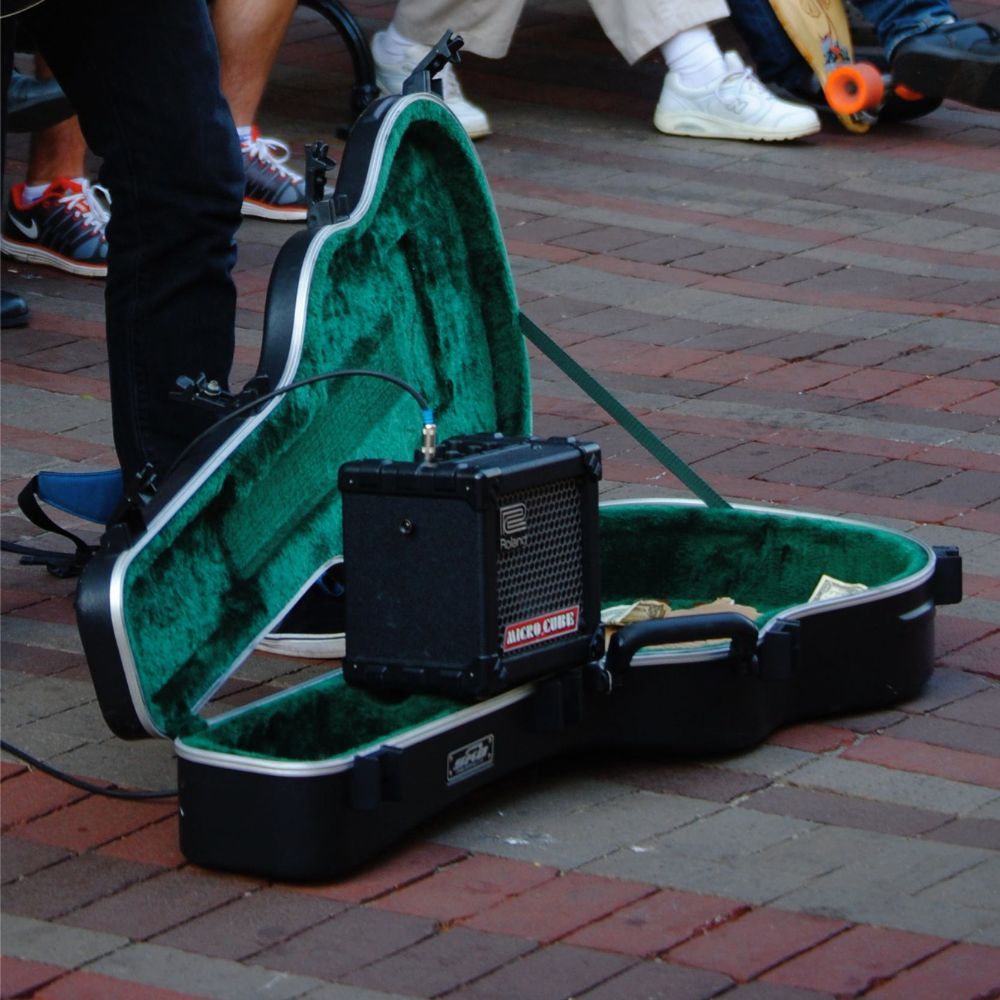Amping Up Your Sound: A Guide to Acoustic Guitar Amplifiers

Ever sat down to play your beloved acoustic guitar, fingers poised over the strings, only to feel that something is missing? Maybe the sound isn't quite reaching the corners of the room, or perhaps the depth and richness of the tones just aren't shining through as they should.
The solution? An amplifier specifically designed for acoustic guitars.
What's Special About Acoustic Guitar Amplifiers?
You might be tempted to use any old amplifier lying around, right? But wait! Did you know that amplifiers for acoustic guitars are specifically engineered to enhance the natural resonance and harmonic complexity of your instrument? They're not just about increasing volume; they're about enriching your sound while maintaining the unique character of your guitar.
Understanding Amplifier Types
Not all amplifiers are created equal. There are primarily three types of amplifiers: tube, solid-state, and digital. Tube amps, with their warm and organic tone, are an old-school favorite. Solid-state amps, on the other hand, are known for their reliability and crisp sound. Digital amps, the new kids on the block, offer a plethora of sound options and effects. Each has its unique charm. So which one is right for you? That depends on your personal preference and the kind of music you play.
The Importance of Amplifier Size & Power
When it comes to amplifiers, size does matter! But it's not just about getting the biggest amplifier on the market. What's the use of a massive amplifier if you're playing in a small room or a cozy coffee shop? Similarly, a smaller amp might not cut it in a large concert hall. The key is to find an amplifier with power that matches your performance environment.
Understanding the Power Rating
When selecting an amplifier, it's vital to understand its power rating. The power rating, measured in watts, determines how loud your amplifier can go without distorting the sound. For small venues or home practice, a lower wattage (10-30 watts) may suffice. However, for larger venues or outdoor performances, you might need a higher wattage.
The Impact of Speaker Size
Just as the amplifier size matters, so does the speaker size. A larger speaker can typically produce lower frequencies better, giving you a fuller, richer sound. Smaller speakers, conversely, might be better at highlighting higher frequencies. Again, the choice comes down to the sound you're aiming for.
Understanding Amplifier Features
Amplifiers come with a slew of features, each one designed to tweak and refine your sound. From equalizers to onboard effects, understanding these features can help you shape your sound to perfection. But remember, more features doesn't always mean better sound. It's all about how well you can use these tools to enhance your performance.
To Preamp or Not To Preamp?
A preamp is not always necessary when using an acoustic guitar amplifier, but it can provide additional control over your sound. A preamp can add more tonal color and help shape your sound before it reaches the amplifier. It's an extra tool in your arsenal but remember, it should complement your amplifier, not overpower it.
The Role of Direct Inputs and Outputs
Direct inputs and outputs on an amplifier can be quite handy. They allow you to connect your amplifier directly to a PA system or a recording device. This can be particularly useful when performing live or when recording your music.
The Significance of Channels and Inputs
Amplifiers come with varying numbers of channels and inputs. Some have only one channel, while others have multiple. If you plan on playing with multiple instruments or using different sound effects, an amplifier with multiple channels would be beneficial. Similarly, the number of inputs can determine how many instruments or devices you can connect to your amplifier at once.
Exploring Built-in Effects
Many modern amplifiers come with built-in effects like reverb, chorus, and delay. These can add depth and dimension to your sound, eliminating the need for external effect pedals. However, if you prefer using your own pedals, make sure your amplifier has an effects loop.
Portability Matters
Last but not least, consider the portability of your amplifier. If you're a performing musician who travels frequently, a compact and lightweight amplifier would be a practical choice. On the other hand, if your amplifier will mostly stay in one place, size and weight might not be significant factors.
Maintenance of Your Amplifier
An often-overlooked aspect of owning an amplifier is its maintenance. Regular care can prolong the life of your amplifier and ensure it continues to deliver high-quality sound. This includes cleaning, avoiding moisture and extreme temperatures, and regular check-ups for tube amplifiers.
Choosing the Right Amplifier for You
Now that you're familiar with the basics, how do you choose the right amplifier for your acoustic guitar? It's a mix of understanding your needs, knowing your budget, and sampling different models. Consider factors like portability, ease of use, and sound quality. And remember, the most expensive amplifier isn't necessarily the best one for you.

Acoustic Guitar Amp FAQs
What is the difference between an acoustic guitar amplifier and an electric guitar amplifier?
Acoustic guitar amplifiers are designed to accurately reproduce the natural sound of the guitar, while electric guitar amps are often designed to add color or distortion to the sound. This means that an acoustic guitar amp will provide a cleaner, crisper sound suitable for an acoustic guitar.
Why do I need an amplifier for my acoustic guitar?
While an acoustic guitar can be played without an amplifier, an amp can add volume and enhance the tone of your guitar. This is especially useful when playing in larger spaces, or when you want to add depth and richness to your sound.
What is the significance of the amplifier's power rating?
The power rating, measured in watts, indicates how loud your amplifier can get without distorting the sound. A higher wattage is generally needed for larger venues or performances with a full band.
What types of amplifiers are available?
There are primarily three types of amplifiers: tube, solid-state, and digital. Tube amps are known for their warm, organic tone, solid-state amps offer reliability and crisp sound, while digital amps provide a wide range of sound options and effects.
How does speaker size affect the sound?
A larger speaker can produce lower frequencies better, resulting in a fuller, richer sound. Conversely, smaller speakers might be better at highlighting higher frequencies. The choice depends on the sound you're aiming for.
What are built-in effects on an amplifier?
Built-in effects like reverb, chorus, and delay can add depth and dimension to your sound. These effects can eliminate the need for external effect pedals, providing convenience and saving space.
What is an amplifier's preamp?
A preamp can provide additional control over your sound by adding more tonal color and shaping your sound before it reaches the amplifier. It's not always necessary, but can be a useful tool for fine-tuning your sound.
What are direct inputs and outputs on an amplifier?
Direct inputs and outputs allow you to connect your amplifier directly to a PA system or a recording device. This can be useful when performing live or when recording your music.
Why is amplifier maintenance important?
Regular care and maintenance can prolong the life of your amplifier and ensure it continues to deliver high-quality sound. This includes cleaning, avoiding moisture and extreme temperatures, and regular check-ups for tube amplifiers.
How do I choose the right amplifier for my acoustic guitar?
Choosing the right amplifier involves understanding your needs, knowing your budget, and trying out different models. Consider factors like portability, ease of use, and sound quality. Remember, the most expensive amplifier isn't necessarily the best one for you.
Summary
Choosing the right amplifier for your acoustic guitar is a personal choice. It's about finding that perfect balance between sound quality, functionality, and practicality.
Remember, an amplifier is not just a tool; it's an extension of your musical expression. So take your time, do your research, and make an informed decision.
Thanks for checking us out, and keep rockin'!
*FYI, when you make a qualifying purchase through one of our links, we might receive a small commission from Amazon or other retailers, at no additional cost to you, which helps us to fund this site. It's a way to find what you're looking for while supporting us in the process!
